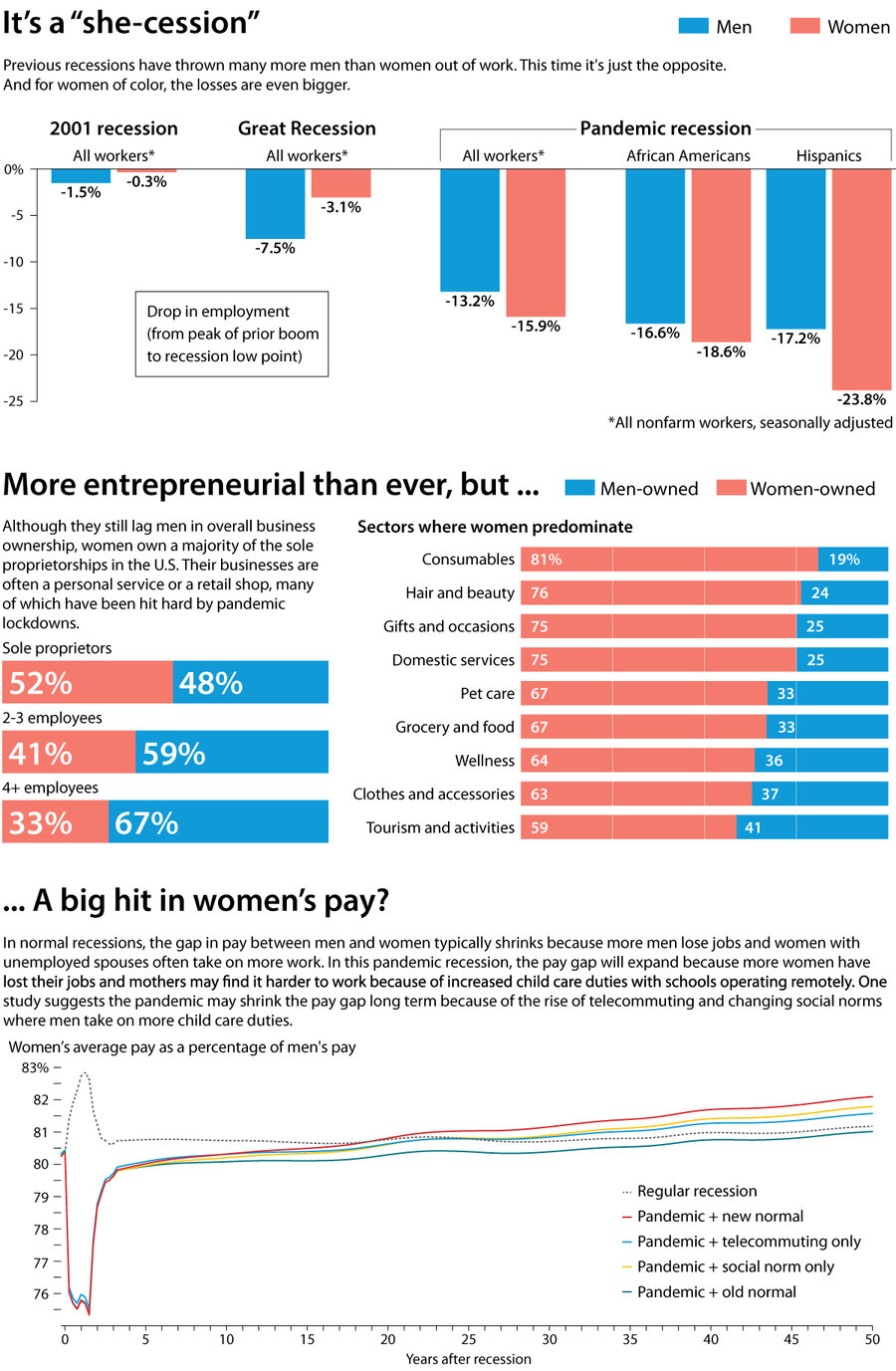For working women, a recession like no other
So many women lost their jobs during the pandemic-led downturn this spring that it has acquired a title: the “she-cession.” In past recessions, men bore the brunt of the job losses. In the 1970s and ’80s, women’s long-term move into the job market was so strong that an economic contraction would barely register in their job numbers. But this pandemic recession has turned past patterns on their head. It has hit hard many of the sectors where female workers predominate, so that their job losses outnumbered job losses for men.
For female entrepreneurs, it’s a similar story. They, too, made gains over the decades and now own more than half of the sole proprietorships in the United States, according to a recent survey. But many of their businesses are concentrated in sectors, such as retail and leisure and hospitality, that have suffered from the lockdowns imposed by the coronavirus.
In a typical recession, the gap between women’s and men’s pay narrows a little because more men are thrown into unemployment and women with jobless spouses take on more work. But a new National Bureau of Economic Research (NBER) study suggests that the pandemic-led recession is doing just the opposite: expanding the pay gap because this time more women are thrown out of work and can’t take on new work, because they have increased child care duties with schools closed by lockdowns.
If there is a silver lining, it’s that in the long term the pandemic may narrow the pay gap as working from home becomes more accepted and fathers, getting a taste of child care during the lockdowns, will accept doing more of household duties, according to the NBER study authors Titan Alon, Matthias Doepke, Jane Olmstead-Rumsey, and Michèle Tertilt. “[T]he rise in work flexibility during a pandemic recession is likely to be persistent, and disproportionately benefits women who have major childcare responsibilities,” they write.






